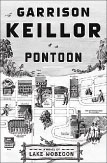Reviews
Books
Structure and Agency: A Sociological Interpretation of the Changing Culture in the Miao Community in Stone Gateway by Shen Hong
Located in Southwest China's Guizhou Province, Shimenkan (meaning "Stone Gateway"), a remote community of the Miao minority, is one of the poorest places in China. However, in the first half of the 20th century, this community became a center of Miao culture and education.

With the help of Western missionaries, a primary school was established in Shimenkan in 1905. Among their graduates in the first half of the 20th century, over 30 went to colleges and two got doctorate degrees, a big achievement at that time.
However, in the second half of the 20th century, education declined in Shimenkan, and the illiteracy rate became higher.
Shen Hong, a researcher with the Chinese Academy of Social Sciences, analyzes the political, economic and social reasons of this decline and looks at what education means to the Miao people in her book Structure and Agency: A Sociological Interpretation of the Changing Culture in the Miao Community in Stone Gateway. Based on her own field work, the book also includes a chapter of oral history narrated by the local residents.
Published by the Social Sciences Academic Press, the book provides rare first-hand information about the complex challenges facing educational institutions in China's rural areas. Mu Qian
Pontoon by Garrison Keillor
Garrison Keillor published his first novel set in the fictional Midwestern town of Lake Wobegon in 1985, by which time he had been broadcasting monologues on his radio show for more than a decade. With Pontoon, the first Lake Wobegon novel since 2001, he proves that he has lost none of his power to evoke small town life, while smartly undercutting the nostalgia and warmth that seem at first sight to account for his appeal.

There are those who find him irritatingly whimsical. Homer Simpson once watched Keillor delivering a television monologue before hitting the set and shouting: "Stupid TV! Be more funny!" The folksiness of the setting - those quilting circles and church suppers - can be tiresome. The understatement of the humor can feel like politeness, and there are moments when you want to shout at the plot to stop meandering.
But it would be falling into a kind of trap to conclude that the wholesomeness of the setting is all there is. Underneath the characters' stolidity and stoicism, there's usually a canker of bitterness. Keillor's critique of small town life is at least as strong as his affection for it. All the major characters in Pontoon are thinking about escape. The novel opens with a death, in a way that brings home the shortness of life (the dying character hasn't finished the book she's reading and her subscription to the New Yorker is paid to the end of the year). The older characters think with alarm about the imminence of assisted living while the younger ones snatch at experiences that might make the whole sorry process worthwhile. There is a comic plot involving a funeral and a wedding on the lake, which get predictably entangled, but the real reason to keep coming back to Keillor is for his observations on character and community. These are slipped in slyly, or delivered deadpan, with great comic timing.
The books go on being so good because beneath the surface is so much else: lots of sex, for a start, even - perhaps especially - among the elderly and the grossly obese; and the tragedy of wrong choices made and sadness that can never be overcome. Although the books appeal to a nostalgia and a heritage industry view of America, in the end they seem to be quite sad and fairly bleak. The Guardian
(China Daily 01/08/2008 page20)














